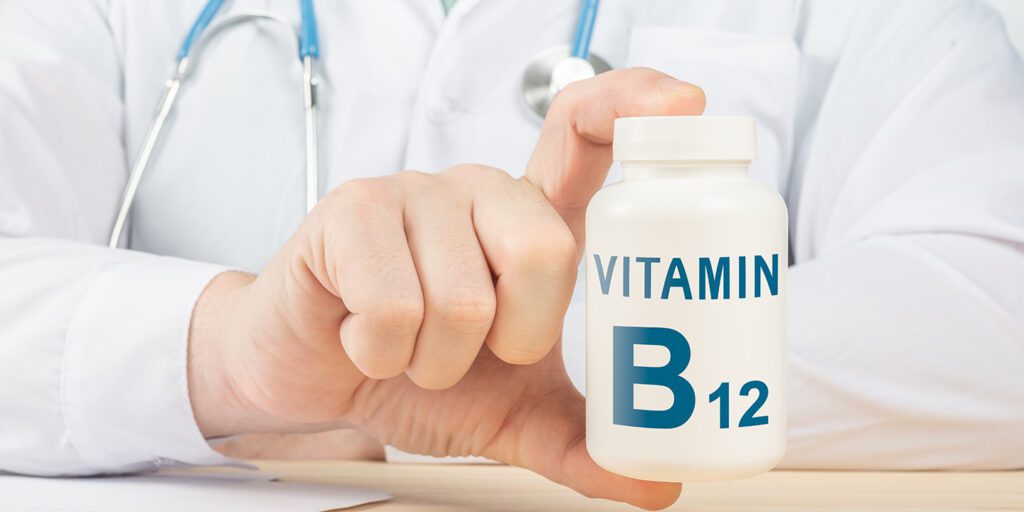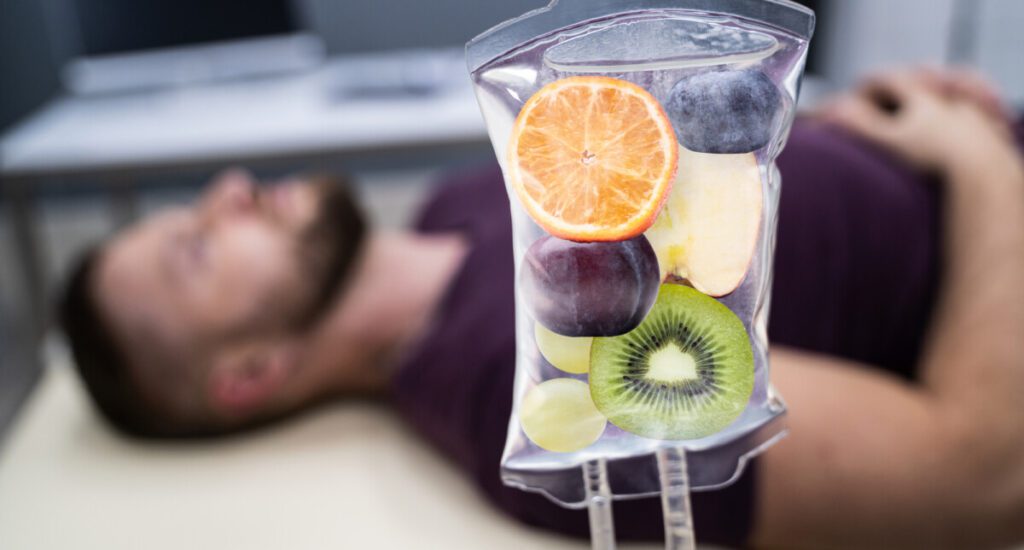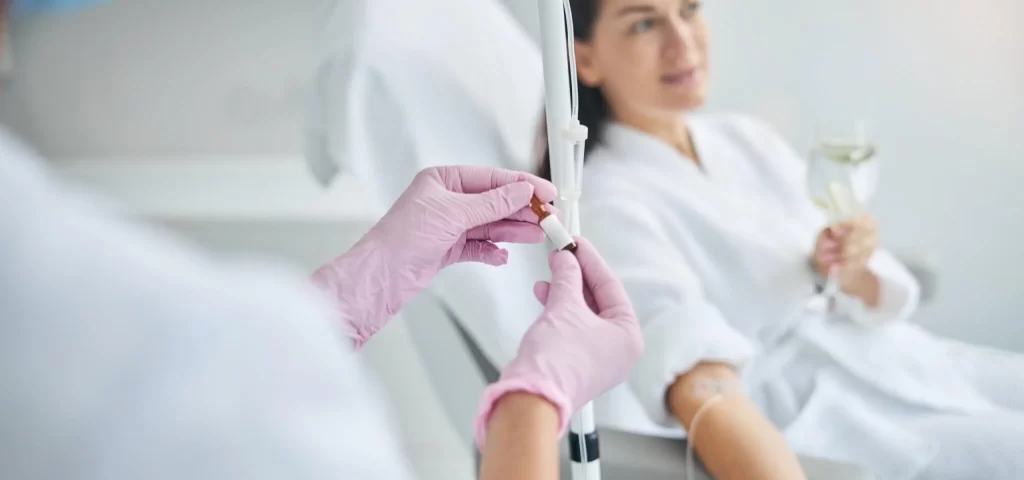Lipostat IV Therapy
Lipostat IV TherapyUltimate Guide to Lipostat IV TherapyLipostat IV Therapy is a highly effective treatment designed to promote weight loss, increase energy levels, and lower cholesterol. This therapy involves the administration of lipotropic compounds and essential nutrients through intravenous injections, allowing for faster absorption and better results.The components of Lipostat or referred to as Lipo C IV Therapy are carefully blended to maximize its benefits. These injections typically include a combination of amino acids, B vitamins such as B12 and B6, as well as methionine, inositol, and choline. These compounds work synergistically to support liver function, enhance metabolism, and aid in the breakdown and elimination of fat. The amino acids included in the blend also help to promote muscle growth and improve exercise performance, contributing to the overall weight loss and energy-boosting effects of the therapy.Through regular Lipostat IV Therapy sessions, individuals can experience significant improvements in their weight management efforts, enjoy a noticeable increase in energy levels, and effectively lower cholesterol levels. This treatment is safe, convenient, and offers a natural approach to achieving a healthier and more balanced lifestyle. With its proven track record, Lipostat IV Therapy is a popular choice for those seeking to enhance their overall well-being. What is Lipostat?Lipostat is a specialized injection containing a unique blend of B12, peptides, and other essential nutrients designed to support metabolic function and energy production. This combination is formulated to target weight loss, cholesterol levels, and overall well-being.Lipostat is administered through an injection, making it an efficient and convenient method for delivering its powerful components directly into the body. Eligible individuals who may benefit from Lipostat include those struggling with weight management, low energy levels, brain fog, and high cholesterol.The specific benefits of Lipostat Plus include supporting a healthy metabolism, promoting weight loss, and aiding in lowering cholesterol levels. Additionally, the B12 and peptide components are known to enhance energy levels, improve brain function, and contribute to overall well-being. By helping to regulate metabolism and promote better energy output, Lipostat offers a comprehensive approach to supporting weight loss and cholesterol management.Who can get Lipostat?Lipostat is designed for individuals who are 18 years of age or older and have a body mass index (BMI) of 30 or higher, or a BMI of 27 or higher with at least one weight-related medical condition, such as high blood pressure, diabetes, or high cholesterol. However, individuals between the ages of 12 and 18 may also be eligible to receive Lipostat, but they need to obtain a clearance letter from their healthcare provider confirming that other weight management methods have been unsuccessful and that Lipostat is a necessary course of action.The primary target audience for Lipostat injections is adults who are struggling with obesity or weight-related medical conditions. This weight loss medication may be beneficial for those who have not seen successful results with diet and exercise alone. Additionally, Lipostat may be a suitable option for adolescents who meet the eligibility requirements and have obtained the necessary clearance letter from a healthcare professional. It is important to consult with a healthcare provider to determine if Lipostat is a suitable option for weight management before beginning treatment.What is Lipo C?Lipo C specifically refers to the mixture of lipotropic agents Methionine, Inositol, and Choline, which work to promote fat and weight loss. These lipotropic agents help to enhance the breakdown of fat in the liver and speed up metabolism, ultimately leading to a reduction in fat and weight loss.When administered as injections, Lipo C bypasses the digestive system, allowing for better absorption of the lipotropic agents and delivering them directly to the bloodstream. This method allows for a more effective and efficient delivery of the key ingredients, leading to potential benefits such as improved metabolism, increased energy levels, and ultimately aiding in weight loss.Methionine, Inositol, and Choline all play important roles in the breakdown and transportation of fats, making them essential for the body’s fat metabolism processes. By combining these lipotropic agents in Lipo C injections, individuals may experience improved fat metabolism and increased energy levels, supporting their weight loss and overall health goals.How do Lipo C injections work?Lipo C injections work by delivering essential nutrients directly into the body, which can improve the body’s ability to burn fat. These injections contain a high concentration of amino acids and vitamins, which play a crucial role in boosting metabolism and increasing energy levels. Amino acids, such as Methionine, Inositol, and Choline, help to break down fat, prevent the accumulation of fat in the liver, and boost energy levels. Additionally, the vitamins in Lipo C injections, particularly Vitamin C, help to enhance the body’s ability to metabolize fat and convert it into energy.The potential benefits of Lipo C injections include improved weight loss, increased energy levels, and a reduced risk of liver disease. By providing the body with the essential nutrients it needs to effectively burn fat and increase energy, Lipo C injections can aid in weight loss efforts and improve overall energy levels. Furthermore, the combination of amino acids and vitamins can also help to protect the liver from the buildup of fat, reducing the risk of liver disease. In summary, Lipo C injections work by delivering essential nutrients that support fat burning, boost metabolism, and increase energy levels, leading to a range of potential health benefits.What are the potential benefits of Lipo C injections?Lipo C injections, a combination of Vitamin C and essential amino acids, offer several potential benefits. Firstly, they can aid in weight loss by boosting metabolism and promoting fat burning. Secondly, the injections can increase energy levels, making it easier to stay active and exercise regularly. In addition, the Vitamin C in Lipo C injections can improve mood and reduce symptoms of fatigue and depression. Furthermore, the amino acids in the injections can support liver function, potentially reducing the risk of liver disease.Lipo C injections work by promoting the breakdown of fats and aiding in the production of energy at a cellular level. The combination of Vitamin C and amino acids also









